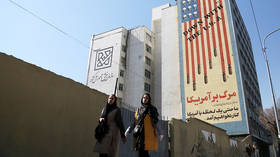Most cancer cases pure bad luck, not preventable – study

About two-thirds of all cancer cases were not caused by environmental factors or bad genes, but rather resulted from random bad luck during stem cell division, a new statistical study says.
This means more effort is needed for early detection.
There are many types of cancer, but they are all basically cells running amok and multiplying without check, which leads to tumors growing and interfering with the normal functioning of an organ. This happens when mutations – random changes in genetic code – accumulate and change the way genes make the cell work.
Carcinogenic factors like smoking and exposure to sun or hereditary factors contribute to the probability of getting the disease. But the majority of cancers just happen, because that is the way our bodies are, a new study by scientists from the Johns Hopkins Kimmel Cancer Center says.
The study published on Thursday in the journal Science used a statistical model to compare lifetime incidence rates of various kinds of cancer with division rates of stem cell in 31 corresponding tissue types. Stem cells are the source of new cells that replace those that die from age or damage.

A stronger correlation between the two indicates that the chance of getting cancer largely depended on how fast stem cells divide – and thus risk getting a mutation. In 22 cancer types such “bad luck” would be the prime cause of the disease, the study showed.
“If two-thirds of cancer incidence across tissues is explained by random DNA mutations that occur when stem cells divide, then changing our lifestyle and habits will be a huge help in preventing certain cancers, but this may not be as effective for a variety of others,” said biomathematician Cristian Tomasetti, one of the authors of the paper.
“We should focus more resources on finding ways to detect such cancers at early, curable stages,” he added.
This certainly doesn’t make smoking and tanning less dangerous for health, researchers warn. Lung cancer and skin cancer are among the one third, where poor lifestyle factors are a major contributor.
“Cancer-free longevity in people exposed to cancer-causing agents, such as tobacco, is often attributed to their ‘good genes,’ but the truth is that most of them simply had good luck,” said the study co-author Bert Vogelstein.
A possible flaw in the research is that it doesn’t include some cancer types like breast and prostate cancer, which are the most common cancer in women and second-most common cancer in men. The scientists say they were not able to find reliable stem cell division rates in scientific literature for those types of tissue.












